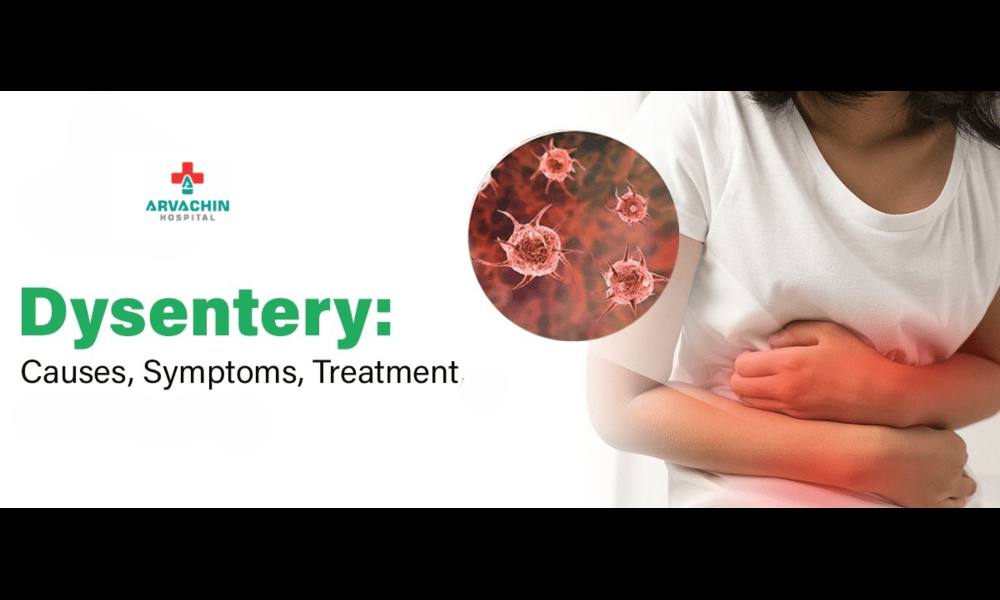


Dysentery is an infection of the intestines that leads to severe diarrhoea with blood and mucus. The primary symptom of dysentery is bloody stools, and it can be diagnosed through a stool culture. Antibiotics are the mainstay of treatment.
What is Dysentery?
Dysentery is an inflammatory disease of the intestine, resulting in severe diarrhoea accompanied by blood. It is commonly caused by parasitic pathogens and bacteria. The initial signs of dysentery include passing loose stools more than three times a day. There are two main types of dysentery:
- Amoebiasis: Also known as amoebic dysentery, caused by parasites such as E.histolytica.
- Bacillary Dysentery: Caused by bacteria like Salmonella and Campylobacter.
Who Does Dysentery Affect?
Dysentery can affect anyone, particularly in areas with poor sanitation. It spreads easily through contaminated food and water, often due to inadequate personal hygiene. Washing hands after using the restroom is essential to prevent the spread.
Symptoms of Dysentery
Dysentery symptoms vary depending on the type and severity of the condition.
- Amoebiasis: Mild symptoms may include high fever, nausea, vomiting, and abdominal cramps. In rare cases, the parasite can travel to other parts of the body and cause abscesses.
- Bacillary Dysentery: Symptoms include bloody diarrhoea, high fever, nausea, vomiting, and abdominal cramps. Severe cases can lead to inflammation and dilatation of the large intestine and acute kidney disease.
Causes of Dysentery
Dysentery is primarily caused by parasitic and bacterial infections. These pathogens are highly contagious and spread through contaminated food or water.
Common bacteria causing dysentery include:
- E. coli
- Shigella
- Campylobacter
- Salmonella
Diagnosis of Dysentery
If dysentery symptoms persist or worsen, it is crucial to seek medical advice. Diagnosis involves checking symptoms, a physical examination, and specific tests such as stool culture to detect parasites and bacteria. A sigmoidoscopy might also be performed to examine the colon.
Treatment of Dysentery
Treatment aims to eliminate the pathogens causing dysentery. For amoebic dysentery, medications are administered. In bacterial cases, antibiotics are prescribed. Some patients may need intravenous fluids for severe symptoms. It is important to follow medical advice for effective treatment.
Prevention of Dysentery
Preventing dysentery involves maintaining good personal hygiene and consuming safe food and water. Prevention tips include:
- Using filtered or boiled water
- Washing fruits and vegetables thoroughly
- Cooking food properly
Complications of Dysentery
Severe cases of bacillary dysentery can lead to complications such as severe abdominal pain, toxic dilation of the large intestine, and acute kidney disease.
When to Contact a Doctor
While dysentery often resolves on its own, it is essential to consult a doctor immediately if symptoms persist or worsen.
Conclusion
Dysentery is a type of severe diarrhoea that includes blood and mucus. It can be caused by parasites or bacteria. Early diagnosis and treatment, typically with antibiotics or fluids, are essential. To prevent dysentery, maintain good hygiene and ensure food and water are clean.
For professional medical care and treatment, Arvachin Hospital offers comprehensive services. If you experience severe or persistent symptoms, consult a doctor at Arvachin Hospital to receive the best care and support.
Contact Us:
- Phone: +91-9695953111, 05422978222
- WhatsApp: +91-9151012715
- Visit: Amara Khaira Chak, Akhari bypass NH2, Varanasi
Arvachin Hospital is dedicated to providing exceptional healthcare services to ensure your well-being.
©
All Rights Reserved For Arvachin Hospital - Varanasi | Design By :
Digital Branding Corporation